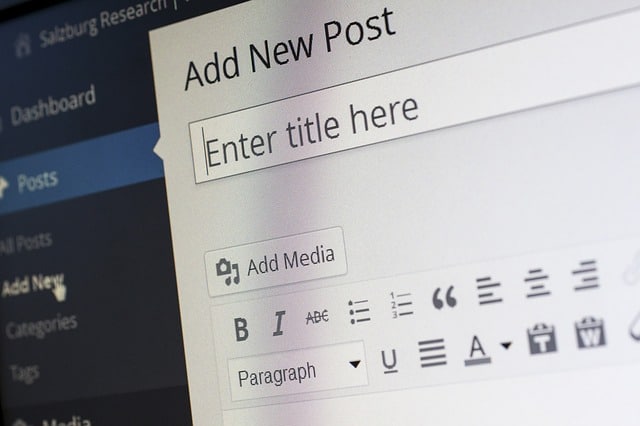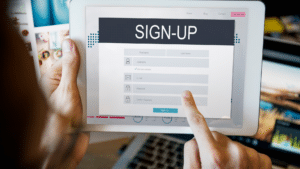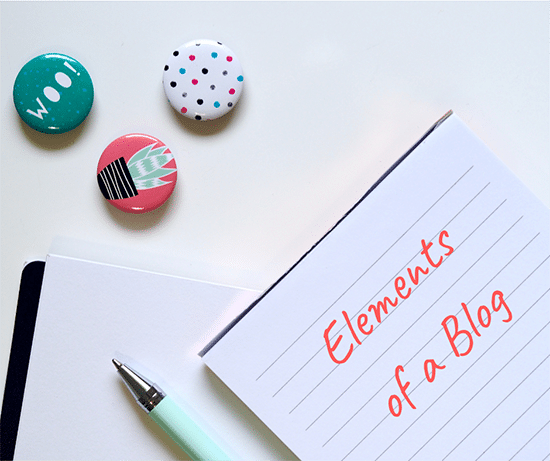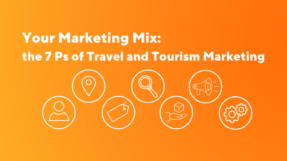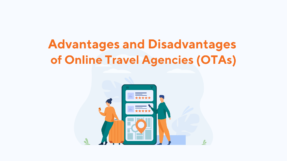Many business owners are afraid to dive into the seemingly time-consuming process of starting a blog. Many are concerned with the fact that a blog doesn’t guarantee profit.
However, blogs are the key to success for your tour operator content marketing strategy.
Blogs increase:
- Visibility
- Conversions
- Leads
- Sales and therefore, profit
Still not convinced? Check out these 10 reasons why your tour or activity business should start a blog.
10 Reasons Why A Blog is Important For Your Business
1. Blogs Help Customers Relate to Your Brand
Publishing dynamic and relatable content helps to humanize your brand. This is a great way to build the trust of your customers and increase your brand’s likeability.
2. Blogs Support Your Social Media Goals
Staying active on social media means publishing other businesses and brand’s content, but more importantly publishing your own.
Publishing your own content increases your credibility as a tour operator. If you provide trustworthy, well-researched content, then readers will see you as an expert in your field and will trust your business as a reliable source to make their next booking.
3. Blogs Help Build Your Credibility
Being an expert in your industry means that customers will trust your brand and always refer to your blog posts for advice. Furthermore, customers will trust you businesses as a tour operator and use your services to book their next trip.
4. Blogs Increase Your Conversion Rates
A well-maintained blog will result in lots of active readers. These readers all have potential to be converted into customers.
Therefore, it is important to continually be reaching out to newer, larger audiences in order to increase your business’s conversion rates.
5. Blogs Increase Your Search Engine Rank
Using SEO and keyword searches helps your rankings on search engines like Google. The higher your search engine rank, the more visibility you are going to generate to your blog.
6. Blogs Help Increase Inbound Links to Your Site
Inbound links are when other bloggers, columnists, journalists, and authors reference your blog content in their articles.
This is a great way to direct more traffic to your site and build your credibility; something that is a lot more difficult to achieve without publishing quality blog content.
7. Blogs Help Create Buzz
Whether you’re offering a new product or service, a promotion, or sharing news about your business, a blog can help generate a buzz.
8. Blogs Open Dialogue With Other Businesses
Opening dialogue through your blog is a great way to build relationships with other business and see what collaborative opportunities they have to offer.
9. Blogs Help Define Your Tour Operating Marketing Strategy
When starting a blog, you have to focus on who you are publishing content for, what your audiences needs are, and how you can satisfy their needs.
Asking yourself these questions helps define your tour operator marketing strategy.
10. Blogs Help Build Your Customer Relationships
Answering the feedback and comments on your blog helps to build and maintain your relationships with potential and past customers. You show them that you care about their questions and concerns.
Now that you’ve read the reasons why starting a blog is important for your tour or activity business, how can you start one?
How To Start A Blog For Your Tour or Activity Business
1.Find your Niche
Ask yourself:
- Who do I want my audience to be?
- What are their needs?
- What is the goal of starting this blog?
- How can I achieve this goal through this blog?
- What are my business’s needs?
Once you’ve answered these questions, you’re on the right path towards satisfying your audience’s needs and your own business’s needs.
2. Set Up The Technicals
- Choose A Hosting Site: Choosing a hosting site is an important step in the process of starting a blog. Your hosting site determines how your website will run.
- Choose A Domain Name: Your domain name determines how your readers are able to search your blog. It is important to choose one that is relevant to your business. Try using your company name.
- Choose A Blogging Platform: A platform like WordPress is easy to use for the beginner blogger. However, there are other platforms to choose from. Check out this article by MonetizePros on the best blogging platforms compared.
3. Have a Content Strategy
Posting content strategically will help your business get the most out of your blog.
It’s important to:
- Write content that matches your company’s image: Because blogs are a great way to have customers relate to your brand, it’s important to consistently show your company’s values and ideas.
- Write content that will keep the customers coming back for more: It is important to write content that is engaging for your customers. Always stay on top of the latest trends and keep your content diverse.
- Have the right people writing your content: Writing lots of high quality content is a difficult task for one person to do. Hire one or two people, depending on the number of articles you would like published, and have them focus solely on writing high-quality content.
- Strategically plan the times when you publish your content: It is important to track the times when people are viewing your blog. This way you can generate even more traffic, conversions, leads and sales by posting during the busiest time.
4. Include Call-to Actions (CTAs)
Call-to-actions are a great way to get customers to take action.
Whether this means signing up for your newsletter or clicking through to your website, CTAs are proven to increase conversions and traffic to your site.
Click here to read an article by Marketing Land on the power of the call-to-action and how its strength boosts conversions.
Examples of CTAs
5. Engage With Your Readers
Writing and publishing your content is just one part of starting a blog. The other equally important part includes staying engaged with your readers.
It’s crucial that you respond to comments and thank readers for their feedback. This way you show your readers that you care about their opinions and questions. Furthermore, it humanizes your brand and helps customers trust your business as a reliable source.
Try ending your blog post with a question to entice readers to comment.
6. Publish Your Blog In Different Places
Don’t limit yourself to publishing your content just on your website.
Share your blog posts on social media, guest posts, and
You can also ask influencers to write reviews about your company and reference back to your website or blog.
Try the tool IFTTT that helps making publishing content across different platforms easy.
7. Measure Your Results
Measuring the results of your blog posts is how your business is going to be able to improve.
Measuring the results of your blog will help you determine:
- The best times to publish a post
- Which posts have been doing the best and the worst
- How the comment sections are affecting your sales
- How your blog is affecting your email lists
- How your blog is affecting your site traffic
Check out these 20 analytical tools to see which one is right for your blogging needs.
Elements of a Blog
What Should You Write About?
As a tour company (and a local in your city) you contain information on all the best spots that tourists are dying to find out about.
Take advantage of your knowledge and write about it in your blog posts.
Write about:
- The best vegan restaurants
- The best places for good wine
- The best places to surf
- Where to go on a ziplining adventure
- The least crowded hiking trails
You also want to touch on other topics like:
- How your tour or activity company works behind the scenes
- Misconceptions of your tour or activity company
- Common concerns about your tour or activity company
- Why they should use your booking company
What Your Blog Needs
Your blog needs:
- Anywhere between 200 and 1500 words: You can write a blog post to answer a short question or go into great detail about a topic. However, try to keep it between 200 and 1500 words. Anything less than 200 words won’t go into enough detail and anything more will be too long for the reader.
- To answer everyday questions from customers: In order to attract the right audience you need to answer the right questions. Keep an eye out for the common questions and comments that your readers are posting.
- To feel like a conversation: Make the blog casual and easy for your audience to read, like having a conversation with a friend.
- Frequent posts: Post a minimum of once a month to keep your audience engaged.
- Visual Content: Make sure to include photos and videos in your blog posts. Visual content really adds an extra something.
- Keywords: Include the words that you find in your keyword searches to optimize your search engine results.
What Your Blog Doesn’t Need
Your blog doesn’t need:
- Topics that are trending: You want to answer relevant questions and have meaningful discussions with your audience. Don’t focus too much on the trends or what everyone else is doing.
- Lengthy posts: Information on the internet is moving quickly and people’s attention spans are getting shorter. Blog posts that are too long are less likely to keep the reader’s attention.
- Flowery language: Don’t go all Shakespeare on your readers. Short, simple and concise sentences should do the trick.
- A professional writer: Anyone can do it, including you!
Conclusion
So there you go. We’ve come up with all the reasons you should start and blog and exactly how to do it.
So what are you waiting for people? Get started today!



